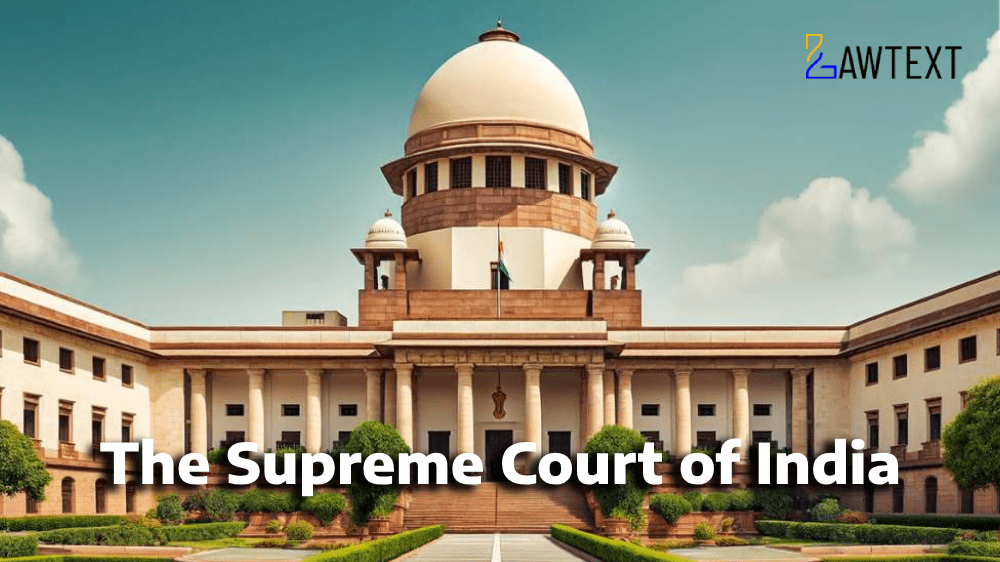

Section 304-B, Indian Penal Code, 1860 – Dowry Death – Essential Ingredients – Section 113-B, Indian Evidence Act, 1872 – Presumption of Dowry Death– A conviction under Section 304-B of the Indian Penal Code, 1860 requires proof that the deceased was subjected to cruelty or harassment in connection with dowry demand soon before her death – Presumption under Section 113-B of the Indian Evidence Act, 1872 applies only when such evidence is established.
Section 498-A, Indian Penal Code, 1860 – Cruelty by Husband – Failure to Prove Specific Acts
– Mere allegations of dowry demand, without proof of specific instances of cruelty or harassment, cannot sustain a conviction under Section 498-A – Past instances of maltreatment, if not recent or connected to the death, do not satisfy the statutory requirement.
Burden of Proof – Contradictions in Witness Testimonies – Significance of Omissions– Material contradictions and omissions in the prosecution’s evidence weaken the case – Late-stage statements recorded months after the incident cannot be relied upon as substantive evidence – The prosecution must establish cruelty or harassment beyond reasonable doubt.
Acquittal – Moral Conviction vs. Legal Standards– The Supreme Court emphasized the necessity of strict adherence to legal standards in criminal convictions – Trial Courts must avoid moral conviction-based decisions in the absence of concrete legal evidence.
Section 304-B, Indian Penal Code, 1860 – Dowry Death
Section 498-A, Indian Penal Code, 1860 – Cruelty by Husband or Relatives
Section 113-B, Indian Evidence Act, 1872 – Presumption as to Dowry Death
Section 162, Code of Criminal Procedure, 1973 – Use of Statements in Evidence
Dowry Death – Cruelty – Harassment – Presumption – Contradictions – Acquittal – Moral Conviction – Evidence Law – Witness Testimonies
Nature of the Litigation:
– The appellant was convicted under Sections 304-B and 498-A of the Indian Penal Code, 1860 for allegedly subjecting his wife to cruelty and dowry-related harassment, leading to her suicide.
Who is Asking the Court and for What Remedy?
– The appellant challenged the conviction by the Trial Court, which was upheld by the High Court, seeking acquittal before the Supreme Court.
Reason for Filing the Case:
– The deceased allegedly suffered harassment due to dowry demands, including demands for money, a jeep, and household items – The prosecution relied on testimonies of the deceased’s mother (PW-6) and brother (PW-7) to prove the charges.
What Has Already Been Decided Until Now?
– The Trial Court convicted the appellant, sentencing him to seven years’ imprisonment under Section 304-B and one year under Section 498-A – The High Court upheld the conviction.
a) Whether there was sufficient evidence to prove dowry demand and cruelty soon before the death of the deceased?
b) Whether the presumption under Section 113-B of the Indian Evidence Act, 1872 could be invoked?
c) Whether the prosecution’s evidence was free from contradictions and omissions?
Appellant’s Counsel:– Contended that the prosecution’s evidence had significant omissions and contradictions – Argued that no cruelty or harassment soon before death was proved – Cited past judgments to argue that the conviction was unsustainable.
State’s Counsel:– Argued that the testimonies of PW-6 and PW-7 were sufficient to establish the demand for dowry and cruelty – Submitted that the legal presumption under Section 113-B of the Evidence Act applied.
The Supreme Court held that:
a) The prosecution failed to establish that the deceased was subjected to cruelty or harassment soon before her death.
b) The contradictions and omissions in the statements of key witnesses weakened the prosecution’s case.
c) The presumption under Section 113-B of the Evidence Act could not be applied in the absence of proof of cruelty soon before death.
d) The appellant was acquitted, and his conviction under Sections 304-B and 498-A was set aside.
Conviction under Section 304-B of the IPC requires clear proof of cruelty or harassment in connection with dowry soon before the death – Mere allegations without supporting evidence do not justify a conviction – Late-stage statements and material contradictions weaken the prosecution’s case.
Final Holding:
The appeal was allowed, the conviction was quashed, and the appellant was acquitted.
Citation: 2025 LawText (SC) (1) 315
Case Number: CRIMINAL APPEAL NO. 1076 OF 2014
Date of Decision: 2025-01-31
Case Title: KARAN SINGH VERSUS STATE OF HARYANA
Before Judge: (Abhay S. Oka J. , Ujjal Bhuyan J.)
Appellant: KARAN SINGH
Respondent: STATE OF HARYANA